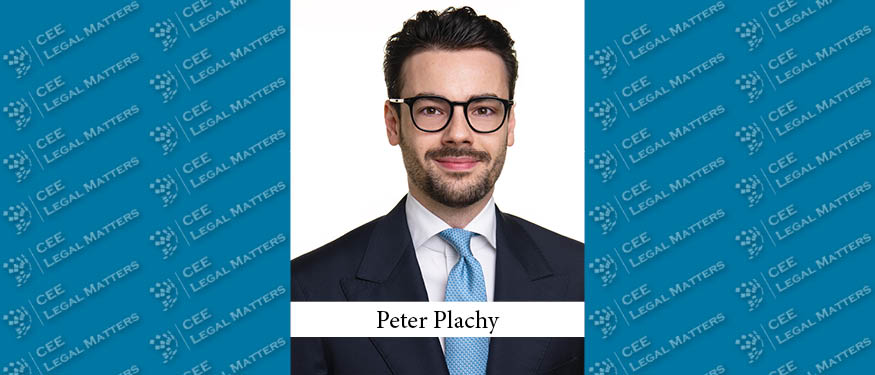A golden parachute is a compensation agreement guaranteeing significant financial benefits to a top executive who loses their job, namely chief executive officers and other high-ranking employees who depart because of a merger or acquisition. They are often applied through clauses in employee contracts, specific contracts, or acts of incorporation.
The primary purpose of Golden Parachutes is to protect top executives in case of a takeover and change of control (i.e. M&A) from job loss and financial hardship, by providing them with means included in the „exit packages” that they have a legal right to receive, giving them a means to „survive“ the unintended leave of position.
Golden Parachutes can also be used as a defence mechanism in case of a hostile takeover, as they are used to disincentivise acquiring companies through the expensive packages that would need to be paid out in order to complete the takeover. They are best used alongside other defence mechanisms such as a sale of the company’s „crown jewels“ and „The white knight technique“.
A hostile takeover is when an „acquiring company“ takes over a „target company“ against the wishes of the target company’s management. This occurrence is ever so present in today’s corporate world and has resulted in the creation of „Golden Parachutes“ in its many forms.
Comparative practice pertaining to this legal institute has given us insight on the many Golden Parachutes being „triggered“, particularly in the USA where it is most lucrative, reaching numbers as high as hundreds of millions of dollars, to CEO-s of companies such as Pfizer, Gillette, General Motors. This however does not mean its presence cannot be felt on European grounds, as it is very much flourishing. This information, however, is not considered public in Serbia and is rarely available to find.
Golden Parachute name meaning:
- „Golden“- indicates the lucrative benefits its holder receives, ranging from lump sum cash payouts to stock options in the new company, and many more!
- „Parachute“- indicates its purpose of „softening the landing of the exiting top executive“, being pushed out of the target company by the acquiring company.
For a Golden Parachute to „activate“ two certain requirements need to be met, regardless of the comparative practice of the given legal institute :
- Change of control in the company, that occurs as a result of a Merger or an Acquisition; and
- The termination, whether willful or not, of the employee agreement.
LEGAL BASIS
For a Golden Parachute to be valid, it needs to be based on either, a contractual agreement between the company and the potential holder of the parachute or more seldom is guaranteed in the Incorporation Act.
The Agreement can be in the form of an employee contract or a separate contract which stipulates specifically the terms of this clause. If a Golden Parachute has its legal basis in a contract, it provides the company power to suit the clause to its needs much more freely.
The incorporation act, has the benefit of the company being able to generalize the use of the clause, however, the drawback is it is not being specialized to the management at hand, which could lead to, if triggered, payments of such amounts which are not „tailored“ to the quality of work that the holder presented during their tenure.
Specifics, regarding the implementation of the clause in the aforementioned ways, can be found in the Corporate Governance Code (Official Gazette no. br. 99/2012) under the ninth principle.
COMPENSATION
The type of compensation the holder can receive are the following:
- Severance payments: in the form of cash, stock options, special bonuses
- Paid insurance: Dental and health
- Executive pension benefits
- Other perks
The type and amount of compensation a person receives is determined by several factors:
- The position of the holder in the company
- The amount of other Golden Parachute holders
- Yearly salary as well as duration of tenure in said position.
ADVANTAGES AND DISADVANTAGES
The advantages of Golden Parachutes almost unilaterally target its recipients, granting them financial stability during difficult times, often at the detriment of the company’s shareholders. For the targeted company, it is useful for deterring Hostile Takeovers.
Their existence allows experts in certain areas to accept positions at the company due to the benefits they possess.
The more relevant topic, and the point of discussion of many in the legal environment, are the disadvantages of Golden Parachutes, specifically how easy it is to falsely „trigger“ the mechanism by purposely incentivizing market „opponents“ to complete a hostile takeover.
The reasoning for implementing Golden Parachutes, as part of an executives contract or incorporation act, is vast, it includes:
- Receiving a payout that amounts to a sum larger than the sum that the exiting top executive would have received as part of their regular salary.
- In case of a possible firing, due to not fulfilling certain requirements, the top executives protect themselves by „triggering“ the Golden Parachute and essentially reaching the same result in terms of unemployment, however, the payout they receive is many times larger than what they would’ve received had there not been a hostile takeover.
TYPES OF PARACHUTES
Different modifications of Golden Parachutes exist, all of them following the same naming principle as the Golden Parachute. They differ in the amount that is paid out and/or the position of the recipient inside the company:
- Silver Parachute- the sum received is smaller than the one in Golden Parachutes.
- Tin Parachute- Provides a smaller sum to a wider number of persons inside the company, where compensation is directly affected by the duration of the tenure of said persons.
CONCLUSION
The idea of Golden Parachutes is great, however, due to it being more flexible in its regulation, many flaws of this concept become apparent. Freedom, in the way it is applied, has caused company executives to lose sight of the purpose of this legal institute.
For Golden Parachutes to be viable, there needs to be a balance between the needs of the existing upper management at hand, for which this legal institute was created, and also the shareholders whose financial interests may be at risk. The dampening of said effects can be achieved through stricter regulation, namely provisions that nullify extremely lucrative Golden Parachutes by limiting the amount of the payout received, thus disincentivizing top executives from „pushing“ towards a merger that is neither needed nor „healthy“ for the company’s future.
By Zivko Simijonovic, Senior Associate and Milic Perkovic, Associate, JPM & Partners
















